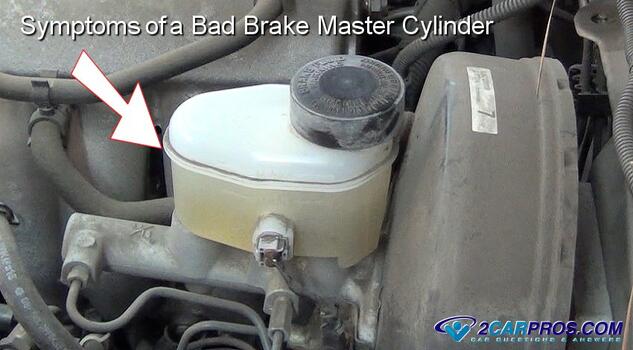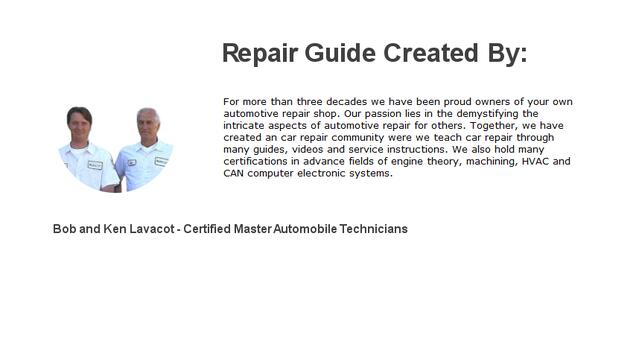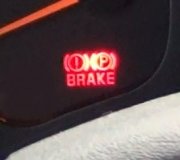The brake master cylinder is at the heart of the automotive braking system which is responsible for converting the physical force from the brake pedal into hydraulic pressure to engage the brakes, when this part goes bad it can hinder the braking performance which is a safety hazard. In this guide we discuses the failures and what to look for when this brake components goes bad.
What Goes Wrong?
1. Brake Pedal Sinks to Floor
When a brake master goes bad it can do so when the internal seals start to fail and allow brake fluid to bypass internally which causes a sinking sensation while pressing the brake pedal. There are many reasons the brake pedal can be low so don't jump to the conclusion this is the problem 100% of the time. This guide can tell you more - Brake pedal sinks to floor.
2. Brake Fluid Leaks
The brake master cylinder has two main places it can leak form, one is the main seal at the rear of the unit and the other is the seals that attach the fluid reservoir to the brake master housing. When the main seal fails it can fill the brake vacuum booster with brake fluid, at this point the vacuum booster should be replaced as well. This can be detected by using a flashlight to inspect the rear of the master cylinder and the bottom of the brake booster.
3. Brake Warning Light
As a safety precaution brake systems are designed to have two separate functionalities that are independent of each other, front and rear, this is so when the either the front or rear brake system has a malfunction, the opposite system will still work. The brake system warning light can be telling you that one half of the brake system is not working which can be an internal brake master cylinder failure, this light can also be on due to low brake fluid levels.
4. Air in the Brake Fluid
This can happen even though you have bleed the brake system completely including opening the ABS controller valves. If you constantly find air inside the brake system every time you bleed it, this is because the main seal at the rear of the brake master is going bad. The main seal is meant to hold pressure inward while the master is in use but when the brake pedal is released this seal can allow backflow air to get sucked back into the master via the plunger, (In this case the brake master may not leak fluid).
5. Brake System Lock Up
The brake master cylinder plunger can become seized inside the master cylinder housing and not return to the neutral position causing the brakes to lock up. This can be confirmed by opening the brake bleeders at each wheel and if the problem goes away the brake master cylinder needs to be replaced.
Pro Tips
- Inspect for brake fluid leakage around the master cylinder and check the fluid level regularly
- If leakage is present replace brake master cylinder immediately.
- If the brake master cylinder actuator rod is adjusted to far out it will not cause the brake master plunger to not fully return creating residual brake pressure which causes the brakes to lock up.
- There must be 1/16 of an inch or 1.5 mm clearance between the master cylinder and the brake booster or pedal rod for proper operation.
Bad Practices
There is a reason, (in most brake replacement guides), they say to only add brake fluid from a sealed container. This is because moisture can get inside the fluid which can rust and corrode the internal working of the cylinder bore inside the brake master housing which cause pits and can lead to leakage both internally and externally.
How Long Do Brake Master Cylinders Last?
Because the brake master has rubber seals which are used every time you hit the brakes this part is a normal wear item which will last between 90,000 and 150,000 miles depending on driving habits and conditions such as hard braking along with stop and go traffic.
Credits
This guide knowledge base was created by the 2CarPros Team, and by Ken Lavacot: Automobile repair shop owner and certified master automobile technician of over 30 years. If you have question or need help please ask one of our experts we are happy to help. Please visit our 2CarPros YouTube Channel.




